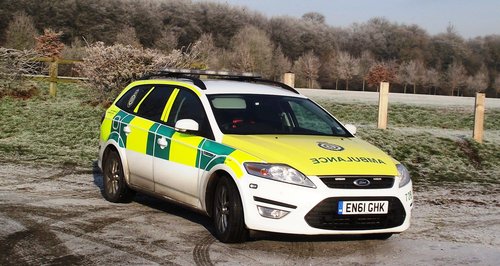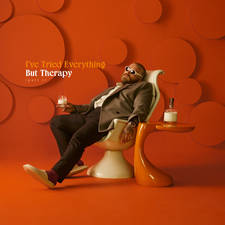East: Report Criticises Ambulance Service
11 June 2013, 14:53 | Updated: 11 June 2013, 15:14

A report has heavily criticised the East of England Ambulance Service for failing to listen to staff, and for failing to meet response time targets.
The East of England Ambulance Service NHS Trust has faced criticism for failing to get to patients in a timely fashion, hospital handover delays and poor staffing levels over the last 18 to 24 months.
A new report into the service says that it is 'suffering with sub standard operational performance' and has recommended that managers act 'urgently'' to restore the achievement of response time targets and get new paramedics into the organisation 'as soon as possible'.
In April the trust, which caters for almost six million people across Bedfordshire, Cambridgeshire, Essex, Hertfordshire, Norfolk and Suffolk, admitted that it is not delivering its 999 service 'well enough', saying that it was letting both 'patients and staff down'.
It said that it does not have enough staff to meet response time targets for the highest priority emergency calls - the most critical calls which cover patients who have stopped breathing and do not have a pulse.
In 2012/13, only 74.3% of patients were reached within the eight minute target time.
It also missed response time targets for 'Red 2' calls, which are serious but less immediately time critical and cover conditions such as stroke and fits.

The trust also admitted failing to get stroke patients to hospital within an hour - in January this year, only 47.6% of patients were transported to a hospital within 60 minutes.
During 2012/13 it also failed to meet the targets for serious but non-life threatening calls, classed as 'Green calls', which require an emergency response to arrive in 20 minutes.
The latest report, conducted by Doctor Anthony Marsh on behalf of the NHS Trust Development Authority, says that for Green calls, some senior people at the trust 'don't even know what the targets are, let alone how the trust performs against them'.
Dr Marsh, who is chief executive of West Midlands Ambulance Service NHS Foundation Trust, wrote: 'There is a feeling across the organisation that the trust board does not listen, and that leadership does not come from board level, this can be evidenced in the fact that the board have only recently accepted that there is a shortage of front line ambulance crews within the trust yet managers state they have been raising this for some time.

Despite this recognition, there are still plans to recruit £350k worth of non-operational staff to the trust.
This funding would be far better utilised recruiting further front line paramedics, providing patient care and meeting response times.
Furthermore, there is a risk that recruiting to some of the advertised additional management posts will come from internal front line operational and clinical staff, thus reducing even further the available front line ambulance crew workforce.''
He adds that there is a 'lack of accountability' at the trust which has led to 'critical decision-making ceasing in some areas'.
In his report, Dr Marsh made 25 recommendations to turn around the trust's poor performance including an urgent recruitment drive to fill the 400 front line vacancies.
He also said that managers should devise an action plan to restore the achievement of local and national targets 'as a matter of urgency'.

Directors need to be 'very clear of what is expected of them' and the board should 're-state the purpose, vision, values and strategic objectives of the organisation with energy, ambition, leadership and focus' he said.
Dr Marsh wrote: 'The current trust board and senior management team appear to have developed a sense of 'helplessness', ie it is what it is.
It is my opinion that the board have not been taking both the responsibility collectively as well as they could or should have and that board members have not been held to account as robustly as I believe is required when an organisation is in a position such as this.''
Following an unannounced inspection of the service in February, health watchdog the Care Quality Commission concluded that the trust was failing to meet the quality standard of 'care and welfare of people who use the services' - the first time an ambulance trust has ever failed this standard.
Doctor Geoff Harris, the trust's new chairman who was appointed by the NHS Trust Development Authority just two weeks ago, said: "One of the first tasks will be for me, with the board, to review the findings of this report and submit a formal response to the NHS Trust Development Authority.
Any changes needed to our existing turnaround plan, which the trust published in April, to incorporate the recommendations will be implemented promptly.
In addition, the findings of the clinical capacity review currently underway will identify what resources the trust needs to meet patient demand and how those resources should be deployed to best effect.
The trust's turnaround plan has recognised many of the issues we need to address and we are focussed on implementing this, together with recommendations from the governance review to improve services for our patients.''

